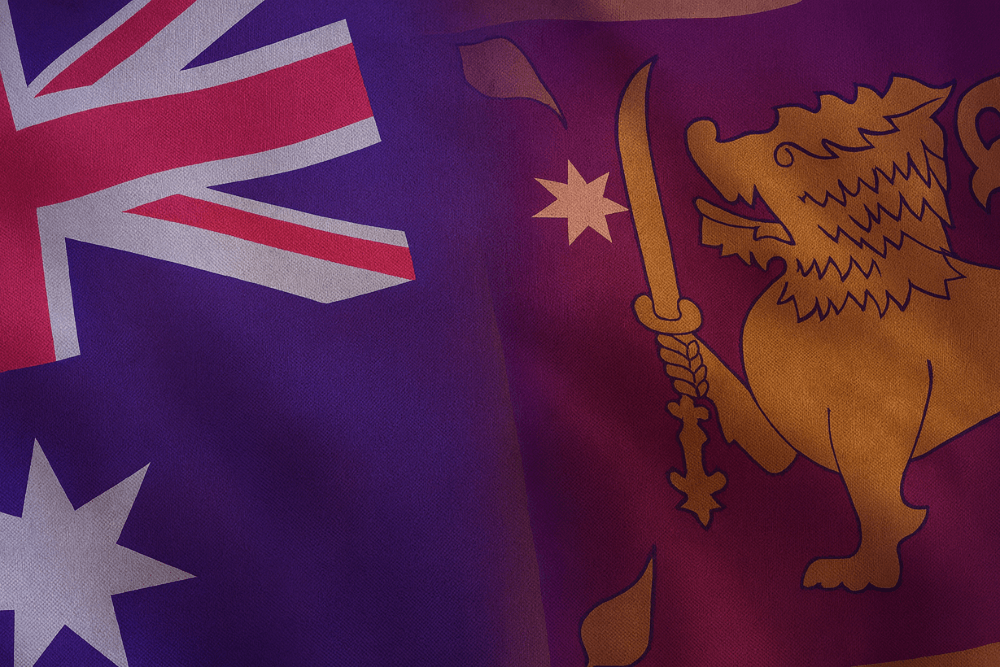Running a business in Australia isn’t cheap. Wages are high, office costs keep climbing, and every year the rules around employment seem to get a little more complicated. For companies trying to grow whether that’s hiring extra staff, testing a new market, or moving into another country it’s a balancing act between opportunity and overheads.
This is where Employer of Record, or EOR, services step in. An EOR basically acts as the legal employer for your staff in another country. They deal with payroll, compliance, benefits, contracts, all the stuff that slows down expansion. The company still manages the employee’s work, but the EOR takes care of everything behind the scenes.
And here’s the interesting part: Australian businesses are starting to realise that outsourcing EOR Services to Sri Lanka isn’t just efficient, it can save them thousands of dollars each year. Sri Lanka might not be the first place that comes to mind when people think of outsourcing, but the mix of talent, cost advantage, and time-zone compatibility is making it a strong option.
Understanding Employer of Record (EOR) Services
At its core, an EOR is pretty simple. Instead of setting up your own company in another country, you hire through the EOR. They’re the official employer on paper, but you’re still the one giving tasks, setting targets, and running the day-to-day.
The EOR covers things like:
- Paying wages correctly and on time
- Making sure payroll taxes are filed
- Handling superannuation-style contributions where required
- Drafting contracts that follow local labour laws
- Keeping track of benefits, leave, and compliance paperwork
For a small or mid-sized company in Australia, this can be a lifesaver. Without an EOR, you’d need lawyers, accountants, and HR specialists just to get started overseas. With one, you can get going almost immediately.
More industries are picking it up too. It’s not just tech firms hiring coders abroad. Retail chains, construction groups, service providers they’re all finding ways to stay competitive by using EOR models. And that’s where Sri Lanka is starting to shine.
The Cost Pressures Facing Australian Businesses
Let’s be blunt: operating in Australia is expensive. The minimum wage is among the highest in the world, and add to that payroll tax, super, and insurance. Even small compliance mistakes can end up costing a fortune in penalties.
Many Australian companies are also feeling pressure from global competition. Customers expect lower prices, but running costs only go up. That’s a tough equation. It forces leaders to look for smarter ways to scale, without burning cash.
Outsourcing isn’t new, but pairing outsourcing with an EOR model makes it safer and easier. You don’t lose control of your people, you just cut down on the paperwork and costs. And when you place that EOR in Sri Lanka, the savings stack up even more.
Why Sri Lanka Is Becoming a Strategic Choice for EOR
For years, countries like India or the Philippines got most of the attention in outsourcing. But Sri Lanka has been building its own reputation quietly. It’s now a solid BPO destination with infrastructure, skilled workers, and a business culture that’s more in tune with Western clients than many expect.
The time zone is a big win here. Sri Lanka is only a few hours behind Australia, so you don’t get those awkward overnight delays that happen with Europe or the Americas. Teams can talk in real time, which is gold for productivity.
Talent pool is another factor. Sri Lanka produces a steady stream of graduates in HR, finance, IT, and law. Many of them speak strong English, often with international qualifications. They’ve been working with overseas clients for years, so they’re used to Western business expectations.
And of course, there’s the cost advantage. Salaries and operating costs in Sri Lanka are far lower than in Australia. For businesses outsourcing EOR Services to Sri Lanka, this means you can cut HR and payroll costs by more than half without cutting quality.
Cost Savings Breakdown
Numbers speak louder than words. Let’s say an Australian company wants to hire 10 remote staff. If they do it locally, the cost of payroll administration, compliance, and HR could easily run into hundreds of thousands each year. By outsourcing EOR Services to Sri Lanka, companies can cut that bill down by as much as 60%.
It’s not only the wages. Think of the overheads you skip:
- No need for an entity in the other country
- No local HR staff or legal team
- No office rent or utilities
- Lower software and system costs (the EOR handles it)
Even a mid-sized firm could see savings in the range of several hundred thousand dollars annually. For small businesses, that’s the difference between struggling to grow and actually expanding with confidence.
Compliance and Risk Management Benefits
Hiring abroad is exciting, but it’s also a legal minefield. One mistake in employment law, and you could be facing fines or lawsuits in a foreign country. Not exactly something a CEO wants on their plate.
That’s why outsourcing EOR Services to Sri Lanka has another big advantage: compliance. The EOR provider keeps track of local regulations, making sure everything is above board. They align contracts with both Sri Lankan and Australian expectations, covering tax, benefits, and employee rights.
It’s also about peace of mind. Leaders can focus on growth instead of constantly worrying about whether a document was filed on time. Risk is lowered, and liability sits with the EOR provider rather than the company itself.
Quality Beyond Cost
Some people worry that outsourcing equals lower quality. That might have been true in the early days of BPO, but Sri Lanka’s outsourcing sector has matured. Providers there now compete on professionalism and global standards, not just price.
A good EOR partner makes sure employees are engaged, motivated, and retained. That matters, because turnover costs more than most people think. If your outsourced staff feel valued and looked after, they’re more likely to stay.
So while savings are the headline, quality is what keeps the model working in the long run.
The Role of Specialist Providers
One reason Australian companies are comfortable looking at Sri Lanka is the presence of hybrid providers. Firms like InvestLab Business Solutions have headquarters in Adelaide but run operations in Sri Lanka. That local presence builds trust while the offshore team delivers the cost savings.
These providers cover the whole package: HR, payroll, finance, compliance, even IT support. For a company leader, it feels less like “outsourcing” and more like extending your own team. You know there’s accountability both in Australia and overseas.
Strategic Advantages for Australian Companies
Beyond money, there’s strategy. With EOR Services to Sri Lanka, businesses can scale faster. Want to add five new staff in a month? The EOR can make it happen without the red tape of setting up entities or waiting on government approvals.
It also opens doors to talent that might not be available locally. Sri Lankan professionals bring skills in finance, IT, and HR that complement Australian teams. And since the EOR handles the admin, leaders can spend their time on customers and growth instead of chasing paperwork.
This flexibility is critical. Markets move fast, and the companies that can adapt are the ones that stay ahead.
Addressing Concerns About Outsourcing
There are always concerns when the word outsourcing comes up. Some fear miscommunication, others think about quality issues. But modern technology has closed most of those gaps.
With cloud platforms, real-time dashboards, and 24/7 service lines, you can monitor work as if the team were down the hall. Plus, the cultural fit is stronger than people expect. Sri Lanka has a business culture that values responsibility and service, which lines up well with Australian standards.
Outsourcing is no longer a gamble. Done right, it’s a smart strategy.
Future Outlook
Looking ahead, Sri Lanka is only going to grow stronger as an outsourcing hub. Digital adoption is expanding fast, and more professionals are entering the workforce with international training. For Australian firms, this means the pipeline of skilled talent will stay steady.
Remote work is also becoming the norm. That makes EOR models even more relevant, because companies need legal and HR support in multiple regions without heavy overheads.
Those who adopt EOR Services to Sri Lanka early will have a competitive edge. They’ll enjoy lower costs, smoother compliance, and stronger global teams while others are still debating if it’s worth the move.
Conclusion
Australian businesses are under pressure high costs, tight compliance, and constant competition. EOR services offer a way forward, and outsourcing them to Sri Lanka makes the model even more attractive.
The savings can reach thousands each year. The compliance risks are lowered. The talent is skilled and reliable. And the model is flexible enough to let companies grow at their own pace.
For leaders looking at the next step, outsourcing EOR Services to Sri Lanka isn’t just about saving money, it’s about building a smarter, more resilient business.





